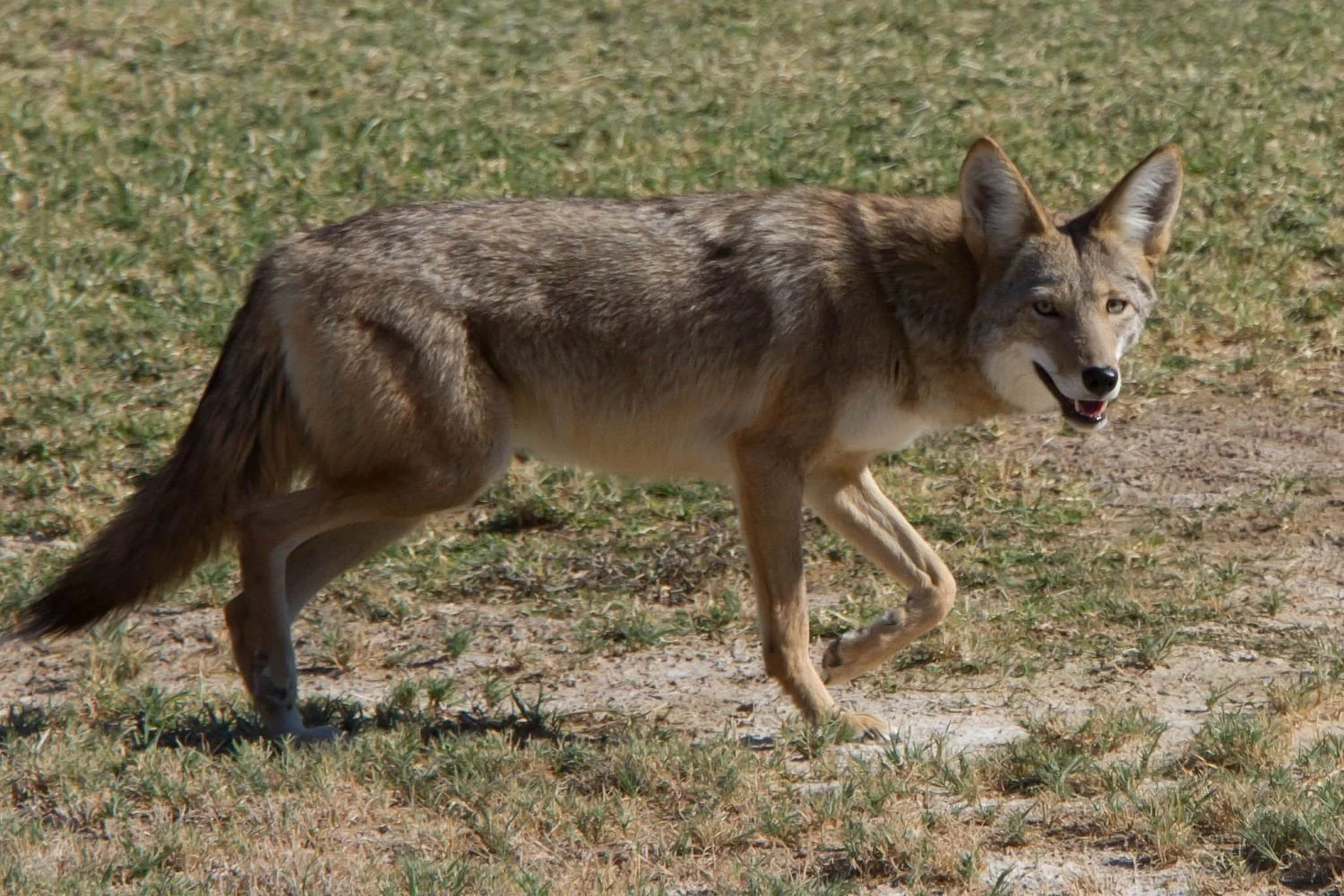Coyotes Are Coming to Your Neighborhood and It’s Okay
All over Tampa Bay, coyotes trot the streets at night and surprise joggers at dawn. They haunt cemeteries and golf courses, alleyways and parking lots. Facebook and Nextdoor blow up with sightings. “The Seminole Heights Coyote” even got some write-in votes in the mayoral election.
For a canine that looks like a German Shepherd, coyotes are often described as catlike. You may never see them face-to-face, but there are thousands of them living among us, even in denser urban neighborhoods.
Your average Florida coyote weighs 28 pounds. They have pointy ears and noses and bushy tails, with coats of tan, gray and brown. Wild fruit, insects, birds and small mammals are some of their favorite foods.
It’s good to have coyotes around. They help maintain balance by controlling populations of rats and other rodents that can quickly overpopulate an area. Although coyotes are an important part of the Florida landscape, some of us may have a hard time adjusting to living alongside them.
Information is power!
Coyotes began expanding their range into Florida in the 1970s, and are now a naturalized species in every county. They avoid people, but will prey on cats or small dogs. It’s rare for a coyote to bite a human.
They are super good at not going extinct. When their numbers dwindle, they simply begin reproducing at a younger age and having more pups per litter until their populations return to the original size.
“They’re here to stay,” says Lara Milligan, a natural resources agent with University of Florida. “They’re not going anywhere.”
The goal is peaceful coexistence.
If you’re concerned about encountering a coyote, be prepared to do a little hazing should the occasion arise. “Hazing” is the term given to any number of techniques employed to run off a coyote.
The most popular technique of all time is making yourself loud and large. Stand tall, wave your arms wildly above your head and yell “Go away, coyote!” at the top of your lungs.
Works most of the time.
City of Tampa and Hillsborough County wildlife officials recommend:
Noisemakers—Whistle, airhorn, bell, empty water bottle filled with pebbles. Projectiles—Sticks, cans, tennis balls. Sprays—Water hose, spray bottles with vinegar water, pepper spray.
Use shorter leashes and avoid walking dogs at dusk and dawn when coyotes are most active.
Clean your barbecue grill, pick up fruit under trees, sweep up birdseed under feeders.
Close off crawlspaces to keep coyotes from making a den under your house.
Coyotes can scale a fence. Don’t leave small dogs unattended in the back yard.




